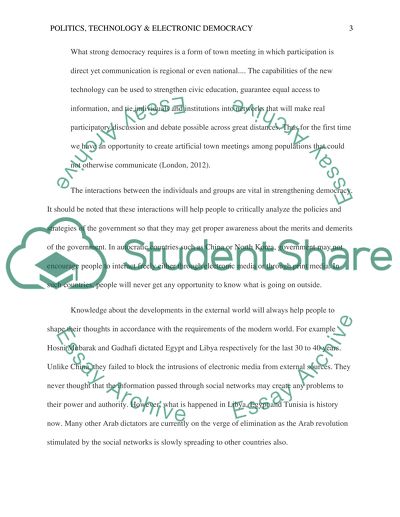Cite this document
(“Politics, Technology and Electronic Democracy Research Paper”, n.d.)
Politics, Technology and Electronic Democracy Research Paper. Retrieved from https://studentshare.org/sociology/1448452-politicstechnology-and-electronic-democracy
Politics, Technology and Electronic Democracy Research Paper. Retrieved from https://studentshare.org/sociology/1448452-politicstechnology-and-electronic-democracy
(Politics, Technology and Electronic Democracy Research Paper)
Politics, Technology and Electronic Democracy Research Paper. https://studentshare.org/sociology/1448452-politicstechnology-and-electronic-democracy.
Politics, Technology and Electronic Democracy Research Paper. https://studentshare.org/sociology/1448452-politicstechnology-and-electronic-democracy.
“Politics, Technology and Electronic Democracy Research Paper”, n.d. https://studentshare.org/sociology/1448452-politicstechnology-and-electronic-democracy.


